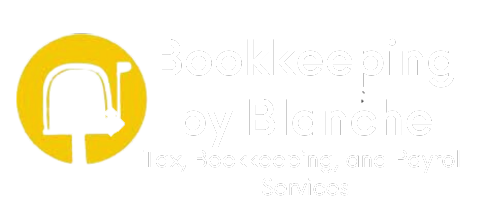Estate and Trust Tax Services for a Secure Financial Legacy
Navigating the complexities of trust and estate tax returns requires precision, expertise, and unwavering attention to detail. At Blanche Tax Firm, we are your dedicated allies in ensuring that your financial affairs are managed with the utmost care and efficiency.
Our seasoned team of bookkeeping professionals specializes in the intricate world of trust and estate tax returns. We understand the unique challenges and responsibilities that come with managing these financial entities. Whether you're an executor, trustee, or an individual seeking expert guidance, our comprehensive tax solutions are tailored to your specific needs.
Here are 5 facts about Trust and Estate taxes you may not know:
Filing Requirements: Trusts and estates, just like individuals, are required to file tax returns with the IRS if their income exceeds certain thresholds.
Taxation of Income: Trust and estate tax returns are subject to income tax on the income they generate. The income can include interest, dividends, rental income, and capital gains, among others.
Different Tax Rates: Trusts and estates have a unique tax rate structure. They reach the highest federal income tax bracket at a much lower income level compared to individuals.
Complex Deductions: Trusts and estates can deduct certain expenses, such as administration costs and interest on loans, which can reduce their taxable income.
Distribution Planning: Trustees and executors often need to strategically plan distributions to beneficiaries to minimize the tax impact on both the trust/estate and the beneficiaries.
Remember that trust and estate tax laws are complex and subject to change, so it's essential to consult with a qualified tax professional or attorney for guidance specific to your situation.
Common Estate and Trust Tax Considerations:
Estate Tax Planning: We'll help you create a strategic plan to minimize estate tax obligations, ensuring your beneficiaries receive the maximum value.
Trust Tax Compliance: Properly reporting income, deductions, and distributions from trusts is crucial, and we'll ensure compliance with current tax laws.
Gift Tax Strategies: Explore options for gifting assets with minimal tax implications.
Beneficiary Reporting: Accurate reporting of income to beneficiaries is a key component of trust administration.
What to Prepare for Your Estate and Trust Tax Appointment:
When scheduling your estate and trust tax appointment, please ensure you have the following documents and information ready:
Completed INTAKE FORM
Estate or Trust Information: Legal entity type, EIN (if applicable), and other relevant details.
Financial Statements: Balance sheets, income statements, and other financial documents for the tax year.
Asset Documentation: Records of assets, including their values and ownership details.
Income Documentation: Information on income generated by the estate or trust.
Previous Year's Tax Returns: Bringing last year's return can assist in identifying potential deductions and credits.

